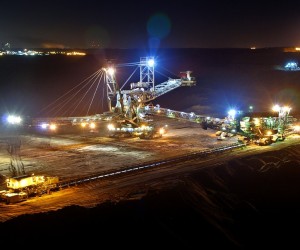It is becoming increasingly clear that the Department of Trade and Industry (the dti) is committed to protecting Acelor Mittal SA (AMSA), notwithstanding the potential extreme adversarial impact it will have on the Steel Downstream and South African consumers.
The introduction of the 10 percent customs duty which was introduced in September 2015 was followed by numerous price increases. Although it resulted in the Steel downstream paying more for steel and the consumer paying more for steel products, AMSA in its own admission did not benefit, simply because its prices are so uncompetitive. The only beneficiary is the state; the customs duty (as a tax) goes directly into the state coffers, with no benefit to AMSA, but with severe prejudice to the Steel downstream and the consumer. Apart from the state as the beneficiary, it is a lose-lose scenario.
As a result of the fact that the 10 percent brought no benefit to AMSA, although it served as a slow poison to the downstream, AMSA approached government for the introduction of a 30 percent safeguard duty. Instead of pursuing an anti-dumping approach (if dumping by China is the main concern - which, as yet, could not be proved), government, on behalf of AMSA, is pursuing the safeguard option, which affects imports from all over the world.
Notwithstanding the fact that the International Trade Administration Commission (ITAC) declared the safeguard duty not to be in the public interest, the dti is still determined to introduce it, albeit now at the level of 12 percent. Nobody can explain the dti's approach towards the implementation of safeguard duties despite ITAC’s initial finding.
The fact that government wants to protect the utterly incompetent AMSA, at the cost of the Steel downstream and the consumer, is an insult to the Steel downstream and South Africans in general. On numerous occasions it has been pointed out to the dti that AMSA's clients complain about late deliveries, that some of AMSA's steel is inferior in that it does not meet Industry specifications, and, worst of all, that certain products (subjected to the customs duty and now also safeguard duties - according to the dti's plans) are not even manufactured by AMSA. All of this is simply ignored by the dti. It all but illustrates a disdain for the interests of the Steel downstream and the South African public.
How can a government protect a monopoly under these circumstances?
The dti’s response that there is a system of rebates to mitigate the adverse effects of the looming safeguards, has been exposed as completely inadequate and administratively unimplementable. All of this has been explained to the dti and the Minister in great detail, with apparently no impact whatsoever.
The Steel Industry, according to a recent report by the Industrial Development Corporation (IDC) has lost 25 000 jobs during the last year, while 500 businesses closed their doors. Over the ten year period prior to that, according to the IDC, the Industry lost 140 000 jobs.
One can only be bedazzled by the dti's response in the face of all the facts and arguments against the protection of AMSA. The Minister of Trade and Industry used to be a staunch critic of AMSA, to such an extent that the dti removed the 5 percent duty that was in place in retaliation of AMSA’s policy of import parity pricing and the repatriation of billions of profits out of the Country.
It was during these times that the Minister of Trade and Industry proclaimed that the dti "… will continue to pursue tariff reduction in mature industries, such as steel, that produce high value goods for downstream industries”. The meeting between President Zuma and Lakshmi Mittal, the owner of AMSA, changed everything though. After this meeting, the duties started rolling in and a new BEE-deal was announced shortly thereafter. The dti and the Minister's approach towards AMSA and duties changed completely: "SA had no choice but to impose emergency safeguard tariffs on imports on certain flat hot-rolled steel products to protect local industry", has become the new narrative.
The question is: what is the real motive behind the protection of AMSA?
It is economic suicide for anyone to protect a monopolistic high-cost producer that is inefficient as a result of its antiquated mills and technology. AMSA’s production cost for hot rolled base coil is USD675/tonne and the rest of the world is trading profitably at USD445/tonne – it cannot be more logical not to protect AMSA.
The protection of AMSA will amount to nothing - not in the short- and not in the long term. AMSA's salvation is in their own hands. It lies in the building of a new mill at a strategic venue resulting in the production of top quality steel at competitive prices. In the absence of the aforementioned AMSA will not survive in the long term - and the duties will simply delay the inevitable; that whilst the Steel downstream is slowly bleeding to death.
This opinion piece is by Gerhard Papenfus, Chief Executive of the National Employers’ Association of South Africa (NEASA).






